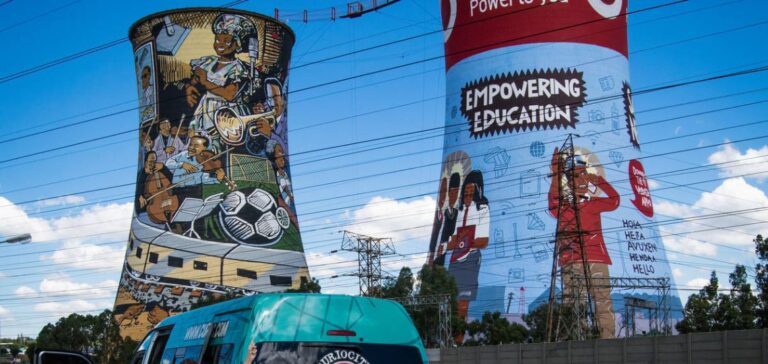South Africa, which has experienced record power cuts in recent months, will “survive” the winter season, thanks to a considerable improvement in production, Electricity Minister Kgosientsho Ramokgopa said on Saturday. He warned last month that the winter would be “incredibly difficult”, but was more optimistic on Saturday, announcing an increase in average electricity production to 60%, compared with 48% a few weeks ago.
South Africa sees a glimmer of hope: Improved electricity crisis looms despite persistent challenges
“We are more than confident in our ability to survive the winter,” “We will not experience the worst-case scenario we had predicted and we will continue to see improvement,” the minister told reporters at a meeting of the African National Congress (ANC) national executive committee, held in a hotel east of Johannesburg.
The continent’s leading industrial power is in the grip of a serious electricity crisis, which has worsened since last year. For months now, South Africa’s 60 million inhabitants have hardly experienced a day without a power cut. State-owned Eskom supplies the vast majority of electricity.
But weighed down by dilapidated coal-fired power plants and saddled with debt after years of corruption under President Jacob Zuma (2009-2018), the company is unable to meet demand and is imposing record scheduled blackouts. In recent weeks, these cuts have been reduced from 12 hours a day to around two hours a day.
“We’re managing to maintain these levels of efficiency,” said the Minister.
A step towards the end of cutbacks and an opportunity for economic growth
He attributes this improvement to Eskom’s mobilization of some of the best production experts and their deployment in the least efficient power plants, whose output “is now exceeding our expectations”. At the height of winter, peak demand, forecast at 34,000 megawatts, was reduced to 30,000 megawatts, he was pleased to report. The power cuts forced many South Africans, who had become accustomed to them, to find alternative sources of energy, such as installing solar panels in their homes.
“I am convinced that load shedding will soon be behind us and that we will start working on creating additional reserve margins to enable the economy to grow at the desired level.”
A crucial issue less than a year before general elections in which the ANC risks losing its majority for the first time in its history. In May, the central bank forecast that GDP would grow by just 0.3% this year, and the power cuts alone would cost the country at least two percentage points of growth.





















